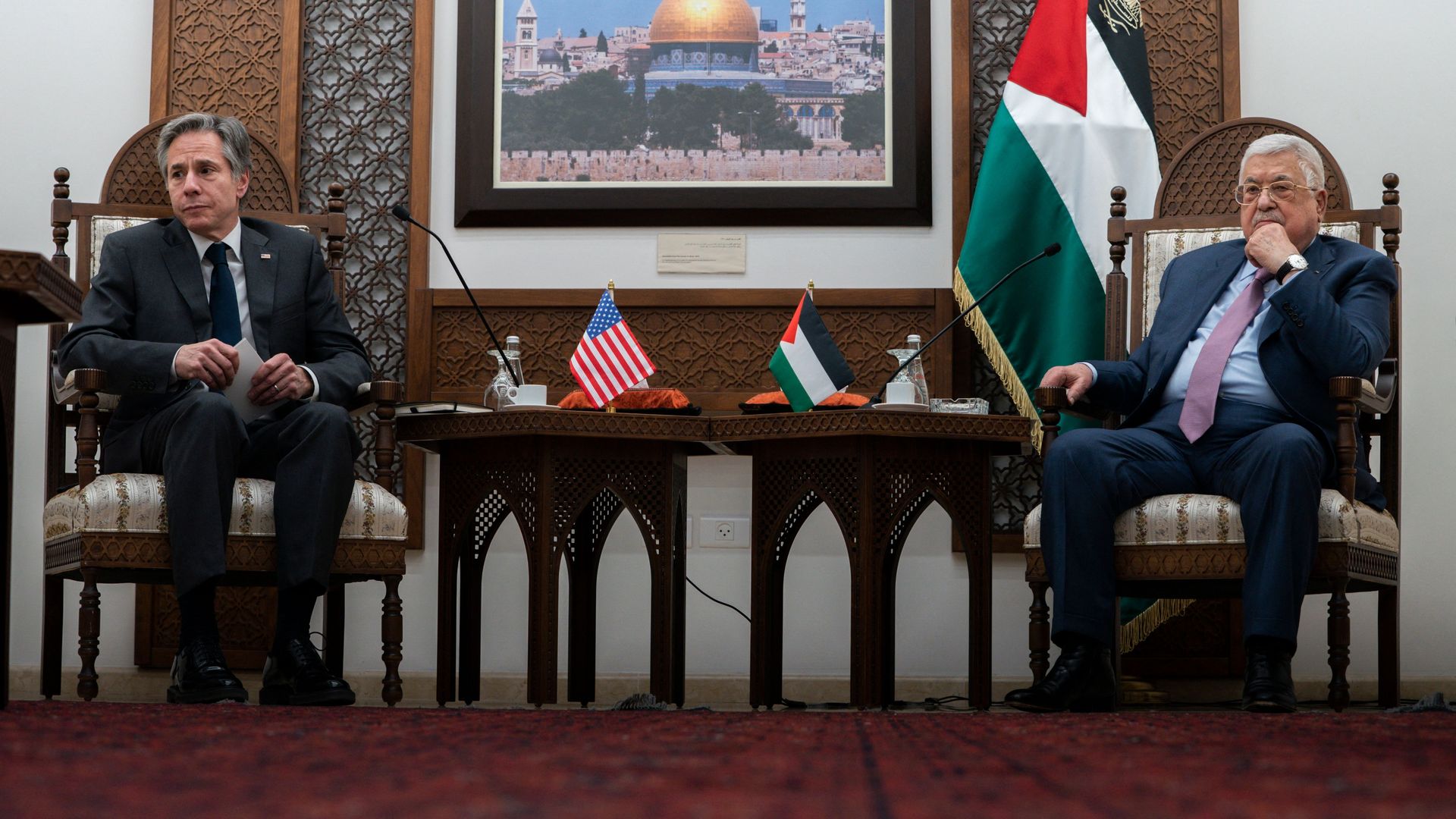Abbas rejects U.S. request to not push for UN court opinion on Israeli occupation

U.S. Secretary of State Antony Blinken meets with Palestinian President Mahmoud Abbas on March 27 in Ramallah. Photo: Jacquelyn Martin/AFP via Getty Images
Palestinian President Mahmoud Abbas rejected a U.S. request to reconsider pushing for a UN resolution that asks the International Court of Justice to issue a legal opinion on whether the Israeli occupation of the West Bank constitutes a de facto annexation, U.S. and Israeli officials told Axios.
Why it matters: The move at the UN won’t have any immediate practical ramifications, but as a new hardline, right-wing Israeli government prepares to take office, it is likely to escalate tensions between Israel and the Palestinian Authority.
The big picture: The ICJ deals with international disputes between countries or gives legal opinions on issues referred to it by the UN Security Council or General Assembly.
- The process of getting an ICJ legal opinion usually takes at least a year. The ICJ in 2004 issued a legal opinion that concluded Israel's separation wall and settlements in the occupied West Bank were illegal.
- Israeli officials told Axios they believe the ICJ, if asked, will endorse the Palestinian position that the occupation constitutes an annexation — an opinion that would give backwind to initiatives by governments, private sector companies, and civil society groups to boycott, divest and sanction Israel.
Behind the scenes: Last week, the Israeli government started a full-court press in an attempt to stop the Palestinians from moving ahead with the resolution.
- Israeli officials said outgoing Prime Minister Yair Lapid spoke to U.S. Secretary of State Tony Blinken last Thursday and asked that the Biden administration press the Palestinians to not go through with the resolution.
- A day later, Blinken called Abbas and urged him to reconsider, claiming such a move would only increase tensions, Israeli and U.S. officials said.
- Abbas refused, and several hours later, the Palestinians moved forward and circulated the draft resolution to the UN General Assembly members in New York. The text was formally submitted by Nicaragua because the Palestinians only have observer status at the UN.
What they're saying: "We will continue to defend Israel against unfair, one-sided actions across the UN-system. Rather than unfairly singling out Israel, UN member states should play a constructive role in advancing a negotiated peace between Israelis and Palestinians," a State Department spokesperson said.
- "We believe it is critical for Israel and the Palestinian Authority to refrain from unilateral steps that exacerbate tensions and undercut efforts to advance a negotiated two-state solution," the spokesperson added.
What’s next: A UN committee is scheduled to begin debate on the resolution on Thursday, according to Israeli officials.
- On Friday, the committee is expected to vote on bringing the resolution before the General Assembly. If it's approved by the committee, which is expected, a General Assembly vote will likely take place in mid-December.
